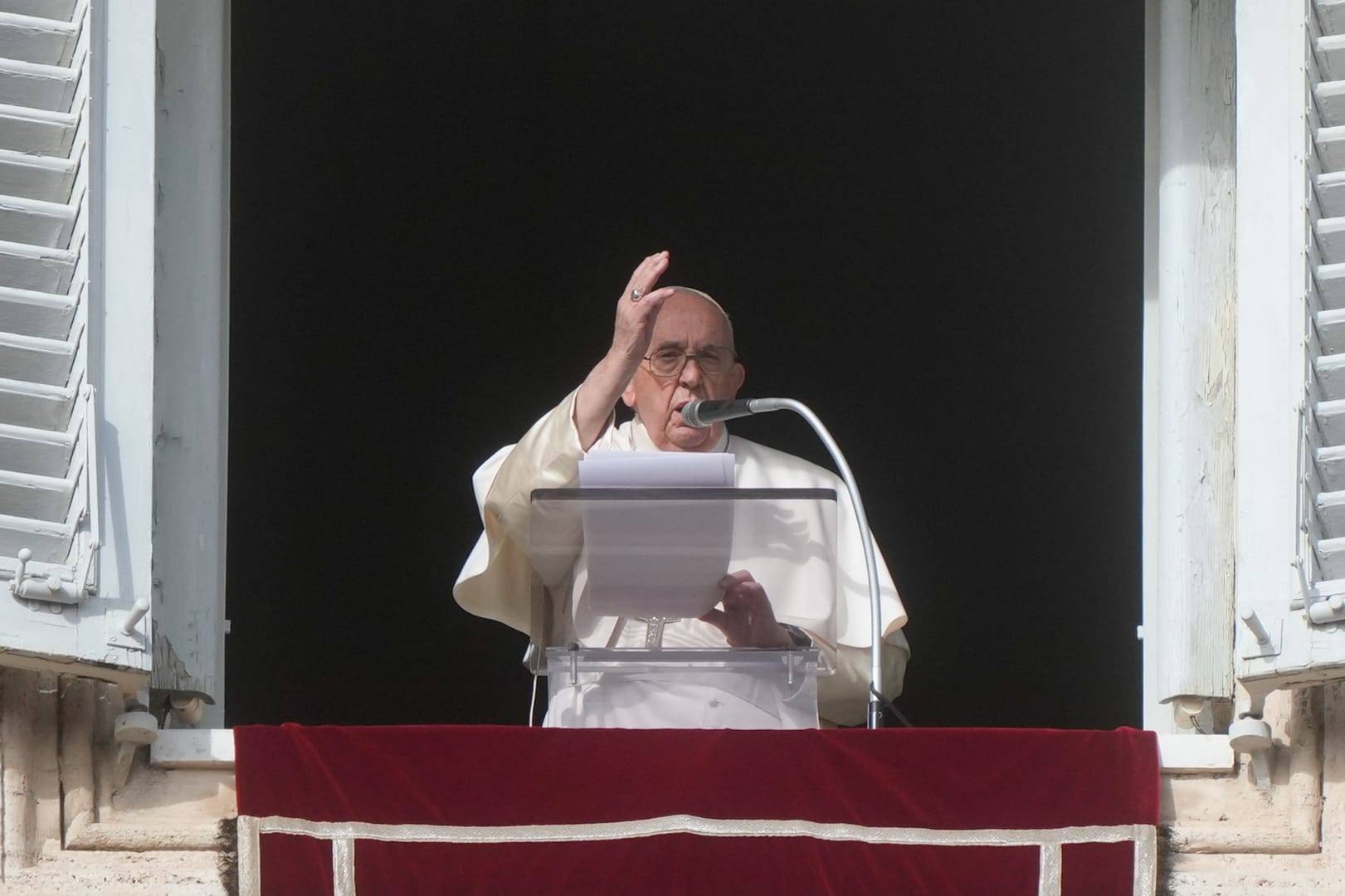ROME — The “cold call pope” reached out and touched someone again this week, this time speaking with the parents of Micaela Garcia, a 21-year old Argentine who was found murdered on Saturday after a week-long search that mobilized Pope Francis’s home country.
Although the Vatican never releases a statement when the pontiff makes these private calls, which have gone down in number but are still a characteristic touch, many of them nevertheless leak out.
This time, it was Garcia’s dad, Néstor “Yuyo” García, who shared the news about the phone call, which took place on Palm Sunday, after the pope led celebrations in St.Peter’s Square.
“Amidst so much pain, an immense joy,” he said. “Pope Francis called me and we spoke for five minutes,” Garcia wrote on his Facebook page, adding that the pontiff had also spoken with his wife, Andrea.
“How far your fight and message goes, my beautiful [referring to his murdered daughter.] Thank you, Holy Father, for your humility and respect,” is what he wrote.
The reference to “fight and message” belongs to the fact that the young victim, kidnapped on April 1, after a night out with friends, was a strong advocate in the fight against violence against women.
Some statistics show that in Argentina, one woman is killed every 18 hours.
A “Not one less [woman]” movement has rapidly grown, born in 2015 exclusively to protest gender-based violence and femicides in the country.
Women’s rights groups, political parties, unions and the Catholic Church have all backed the two major rallies held so far, in 2015 and 2016. Some 400,000-people participated in both rallies in the country’s capital, with tens of thousands doing so nationally.
Protesters demanded harsher punishments for those convicted of femicide, government funding of anti-femicide law implementation, and the collection of official statistics on the occurrences of gender violence and femicide in Argentina.
Micaela’s mother shared her husband’s words, adding: “I never imagined I would have the blessing of Pope Francis.”
The crime took place some 200 miles from Buenos Aires, in Gualeguay, a small city in Entre Rios, a northern state in Argentina. The prime suspect, Sebastián Wagner, was freed on parole last July, after his nine-year sentence for raping two women was reduced by a judge.
Wagner, who was on the run, was captured by the police on Friday, six days after allegedly kidnapping Garcia. A day later, and with his help, her body was found.
Also on Sunday, her father shared on Facebook a message he received from Juan Grabois, a social activist appointed by Francis as a counselor of the Vatican’s Dicastery for Integral Human Development. He revealed that Garcia was a young militant of the Confederation of Workers of Popular Economy and a member of the Peronist Youth.
“[Micaela], you are much more than the victim of the aberrant crime, than the Calvary you suffered as a consequence of a sick and chauvinistic society, a system that is immoral and corrupt from head to toe,” Grabois wrote. “We are going to remember you, above all, for your heroic life of service in favor of the humble, the poor, and of social justice.”
Papal phone calls have been in something of a lull lately.
During the first months of his pontificate, Francis made constant headlines for reaching out to a handful of the thousands that send him letters every day.
There was the Italian woman he comforted after she said she was pressured to have an abortion, and an Argentine woman whom he reportedly advised to take Holy Communion, despite the fact that her husband had been divorced from his first wife.
In 2014 he also called the Foley family of New Hampshire after the murder of their son, James, at the hands of ISIS, and he left a voicemail message for Spanish nuns on New Year’s Eve in 2014, jokingly chastising them for being out of the nunnery and missing his call.
In 2016 he called a notorious family killer in Italy, and his semi-regular calls to a prison he used to minister at in Argentina have also been reported.
Vatican officials are cautious about the calls, saying that the pope’s personal conversations are his own business. They neither confirm nor deny most of his chats.
There are also urban legends around calls that never were, such as a rumored call to President Bashar al-Assad of Syria and another to a young distraught French gay man to whom the pope allegedly said “Your homosexuality, it doesn’t matter.”
Although the Vatican’s official line regarding the papal calls has always been “no comment,” a spokesman vehemently denied these two in September, 2013, saying that it’s the pope’s prerogative to make phone calls, adding, however, that when rumors or hoax calls touch upon issues of international relevance, such as Syria, or could have doctrinal implications, he would intervene to deny the reports.


















